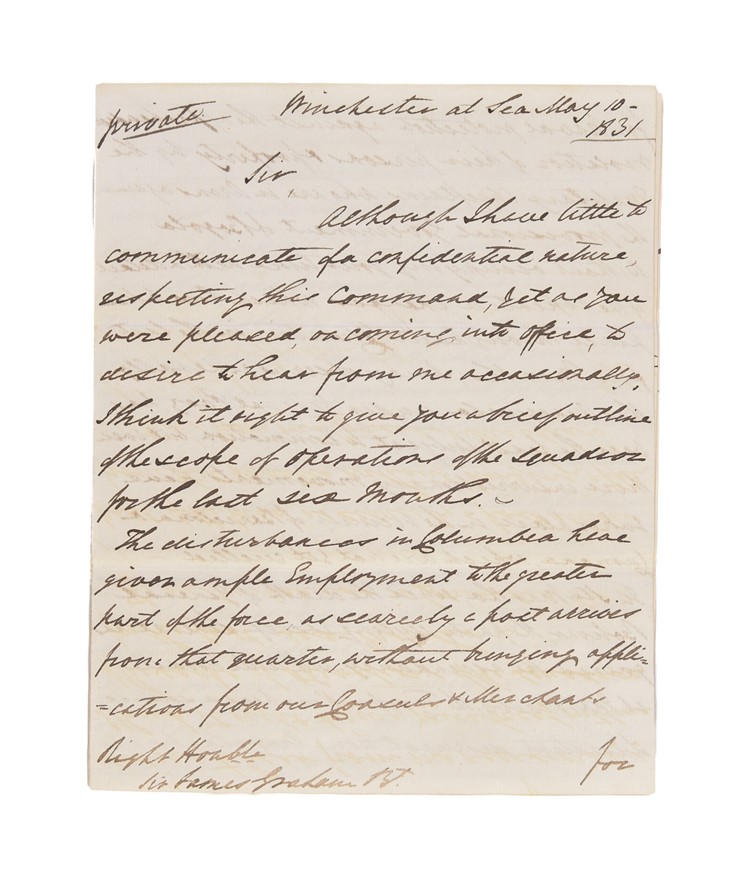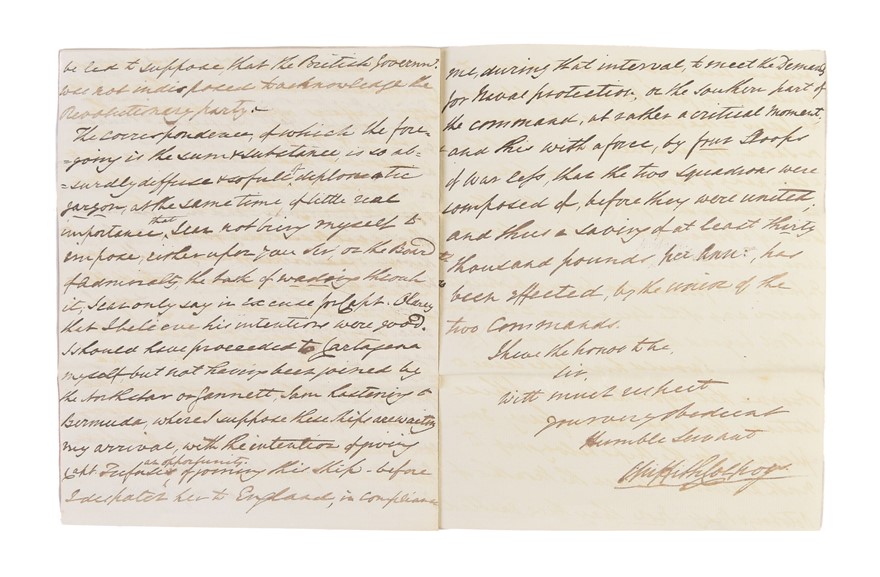ALS to Sir James Graham respecting the revolution in Colombia and the proctection of British interests there.
COLOMBIA ; COLPOYS Vice-Admiral Edward Griffith (1831.)
£1250.00
Please contact us in advance if you would like to view this book at our Curzon Street shop.
Manuscript in ink. 12pp with integral blank. 4to. Winchester at Sea, 10 May,
A fascinating report on British military operations in the wake of the Colombian revolution.
Colpoys gives a quick survey "For naval protection against the apprehended violation of their person & property, by the military chieftains who are in arms against the provisional government in Bogota... I may observe ... that Venezuela under General Paez has been the least subject to commotion, but even there, insurrectory movements have taken place in the vicinity of Barcelona & Cumana, which are not yet quelled - in Sta Martha, since the death of General Bolivar, the party styling itself Liberal has gained the ascendency, with little bloodshed." He goes on to detail activities in Maracaibo (where he stationed "a small vessel of war") and Cartagena ("the most formidable insurrection") before addressing the protection of British interests in what he terms the "most important port on the colombian coast": "The British residents with such part of their property, as they could themselves embark, but no on any account, but not on any account to land armed men of take part in what was happening on shore between the contending parties." He makes special notice of General Luque's activities in the quelling of the fighting at Cartegena and subsequent naval and diplomatic maneouvres, which also affected both French and American subjects.
Edward Griffith Colpoys was born into a aval family and was able to use his connections to rise rapigly through the ranks. In 1797, with his uncle, John Colpoys, he was on the HMS London in the Spithead mutiny. He later commanded a squadron off the coast of Maine in the war of 1812 and was appointed commander of the base at Halifax, Nova Scotia, where he remained until 1821. He spent the following nine years at home with his family before returning to Halifax to resume his old appointment. This letter was written in the same month as his elevation to Knight commander of the order of Bath, he was to die the following year.
Stock Code: 209299





